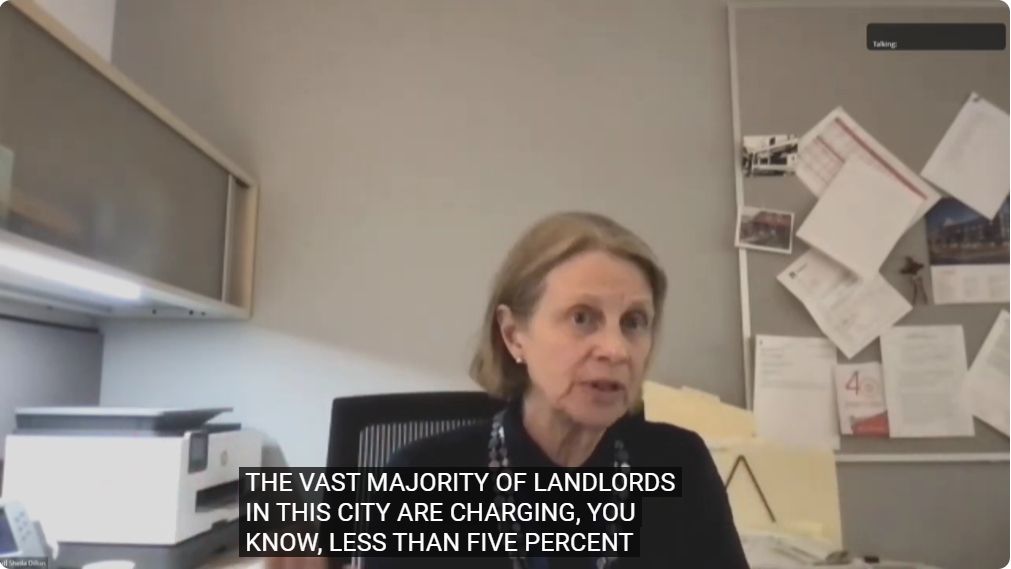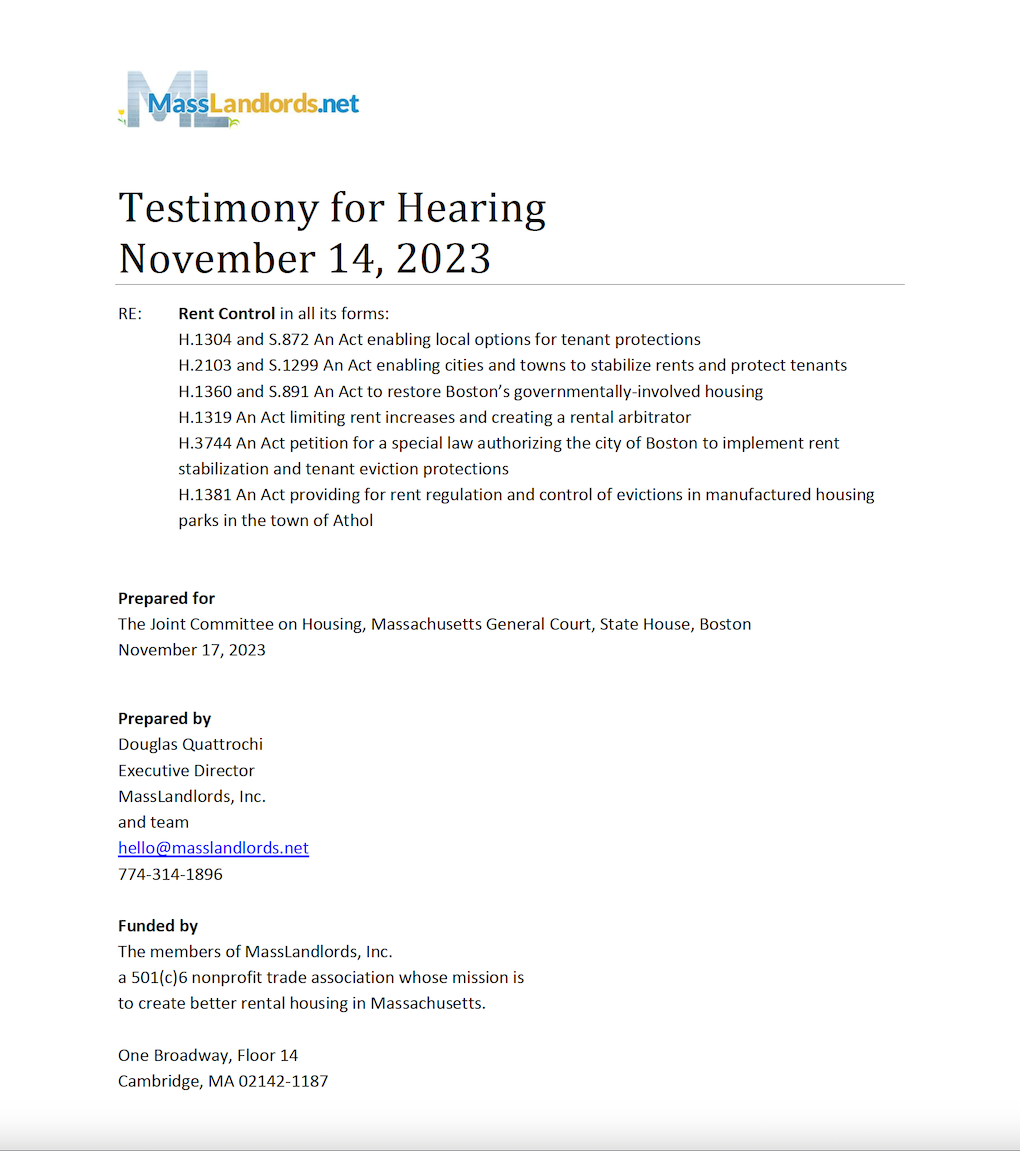MassLandlords Testifies at Lengthy Joint Committee Hearing: No Rent Control or TOPA
| . Posted in News - 0 Comments
By Kimberly Rau, MassLandlords, Inc.
Read our latest on right of first refusal (TOPA).
The Nov. 14, 2023, Joint Committee on Housing hearing was, as expected, long. Multiple bills were up for discussion before the committee, including 193 H.1304/S.872, “An Act enabling local options for tenant protections” (rent control) and 193 H.1350/S.880, “An Act to guarantee a tenant’s right of first refusal.” All totaled, there were seven versions of rent control across nine bills, and four versions of TOPA (right of first refusal) across five bills.

Sheila Dillion, Chief, Office of Housing Stability, addressing Boston City Council Feb 22, 2023 about how the vast majority of landlords are not raising the rent too fast. So why did Boston propose rent control?
Preventing rent control and tenant right of first refusal have consistently been top priorities for our members, according to policy surveys. To that end, Executive Director Doug Quattrochi prepared both oral and written testimony in preparation for the hearing, which dragged on for nearly six hours. (Here is the hearing in its entirety; if you’d like to hear our testimony, which was delivered via Zoom, skip to just past the 5-hour mark.)
Those testifying were technically limited to two minutes each, though some ran over. One individual, Amanda Rites, heckled landlords from the audience, then used her time to read a poem (“Bread and Roses,” typically associated with the textile workers’ strike in Lawrence, Mass.) and vent about her dissatisfaction with a broken housing system.
“I'm sorry that I was heckling earlier,” she stated. “But honestly, if I bite my tongue any more, I'm going to be bleeding internally. These decisions you are making are killing people.” She attempted to continue to testify from the audience, but was respectfully asked to allow the next person time to speak.
We don’t necessarily disagree with her frustration. The housing system in Massachusetts needs fixing. But not through these means. Rent control has failed spectacularly in the past and creates disparate impact based on race, among many other issues. Tenant right of first refusal (TOPA) is rife with opportunity for corruption and does not usually result in tenants purchasing the rental they occupy. Both rent control and TOPA reduce assessed values, real estate taxes and, by extension, municipal revenue. This loss must be made up for by surrounding communities through the State Aid formula.
This is not how we fix the housing crisis. First, we need more housing, and that comes from zoning change, not rent control. Keeping prices artificially low helps people who already have rental housing, but it doesn’t help anyone else. Allowing tenants to purchase property doesn’t create more housing (and, where this was tried in Washington, D.C., most tenants sold their right of first refusal back to the seller). Multifamily by right zoning helps create more housing (and, contrary to popular belief, such “gentle density” improves property values). Allowing accessory dwelling units (ADUs) by right also creates more housing. Building more affordable housing near transit lines allows those who work in Boston to be able to afford to live near public transportation and reduces our reliance on cars (so why are some communities dragging their feet?).
We have submitted our written testimony following the hearing and will continue to fight for fair, safe housing for all. If you haven’t already, this is a great time to contribute to our property rights supporter program, or to help us create rentcontrolhistory.com, which will educate people about rent control by highlighting its history in Massachusetts. If every landlord contributed 1% of gross rents to dues and property rights support, we would be the largest housing advocacy organization in Massachusetts.
We have your back and will continue to be your voice. Help us create a state where the term “housing crisis” is as outdated as the practices that have already failed at solving it.






